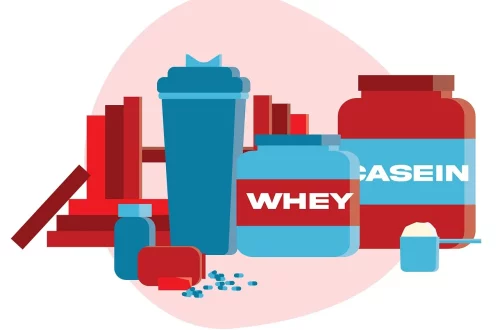
Understanding Horse Down Syndrome: Insights and Implications
Understanding Horse Down Syndrome: Insights and Implications
Horses have long held a special place in human culture, serving not only as companions and work animals but also as subjects of scientific inquiry. Among the myriad of health issues that can affect these majestic creatures, one condition that has gained attention in recent years is Down syndrome, specifically in horses. While Down syndrome is primarily associated with humans, certain genetic abnormalities in horses can lead to similar phenotypes and health challenges. This intriguing overlap between equine and human genetics raises important questions about the nature of developmental disorders, the implications for horse breeding, and the ethical considerations surrounding animal welfare.
As we delve into the details of this condition, it’s essential to clarify that while horses may exhibit traits reminiscent of Down syndrome, the scientific community continues to study these phenomena to understand their causes and implications better. The complexity of equine genetics means that the manifestations of these conditions can vary widely, making diagnosis and treatment challenging. This complexity invites a deeper examination of how we perceive animal health, the responsibilities of breeders, and the role of veterinary science in ensuring the well-being of affected horses.
Genetic Basis of Equine Down Syndrome
Understanding the genetic foundation of conditions similar to Down syndrome in horses requires a foundational knowledge of equine genetics. In humans, Down syndrome is caused by the presence of an extra copy of chromosome 21, leading to a range of physical and intellectual disabilities. While horses do not have a direct equivalent of this chromosomal anomaly, they do have their own set of genetic disorders that can result in developmental issues.
In horses, chromosomal abnormalities can manifest in various ways, affecting their growth, behavior, and overall health. The equine genome consists of 32 pairs of chromosomes, and any deviation in this structure can lead to significant health problems. Research has shown that certain genetic mutations can lead to developmental delays akin to those observed in Down syndrome. For example, conditions like “foal immunodeficiency syndrome” or “congenital heart defects” can mimic some of the physical traits associated with Down syndrome in humans.
As breeders and veterinarians become more adept at understanding these genetic underpinnings, they can make more informed decisions regarding breeding practices. The importance of genetic testing cannot be overstated. By identifying carrier animals, breeders can work to minimize the risk of passing on these conditions to future generations. This proactive approach not only helps improve the overall health of the equine population but also reduces the ethical dilemmas associated with breeding affected animals.
In summary, while horses do not experience Down syndrome in the traditional sense, the genetic principles governing such conditions can illuminate our understanding of equine health. By exploring these connections, we’re not only enhancing equine welfare but also gaining insights into broader genetic principles that apply across species.
Clinical Manifestations and Diagnosis
The clinical manifestations of genetic disorders in horses can be varied and complex. Horses that exhibit signs resembling Down syndrome often present a range of symptoms, including physical abnormalities, developmental delays, and behavioral issues. Common physical traits might include a broader facial structure, larger-than-normal tongue, and distinct body proportions, which can make diagnosis challenging.
Veterinarians play a crucial role in diagnosing these conditions. Given the overlapping symptoms with other disorders, a thorough clinical examination is essential. Vets often rely on a combination of physical assessments, genetic testing, and clinical history to arrive at a diagnosis. Recognizing the signs early can make a significant difference in management and care.
For instance, foals that display signs of developmental delays may benefit from early intervention strategies. This can include specialized feeding plans, physical therapy, and behavioral training. Additionally, monitoring the growth and development of affected horses is critical. Regular veterinary check-ups can help track progress and adjust care plans accordingly.
Moreover, the psychological and social implications of these conditions cannot be overlooked. Horses are social animals, and those with developmental challenges may struggle to integrate into herd dynamics. Understanding their unique needs is vital for promoting their welfare and ensuring they receive the companionship and care they require.
In conclusion, diagnosing and managing horses with conditions resembling Down syndrome necessitates a comprehensive approach that considers both physical and psychological factors. By fostering a greater understanding of these disorders, we can improve the quality of life for affected animals and enhance our practices in equine care.
Ethical Considerations in Breeding and Care
The ethical implications of breeding horses that may carry genetic disorders are profound and multifaceted. As our understanding of equine genetics evolves, breeders are faced with critical decisions regarding the future of their animals and the integrity of their breeding programs. The responsibility that comes with breeding extends beyond mere profit; it encompasses a commitment to the health and welfare of the animals involved.
One of the primary ethical dilemmas is the decision to breed animals that may carry genetic disorders. While some breeders may prioritize lineage and pedigree over health concerns, a growing number are advocating for responsible breeding practices that take genetic health into account. This includes implementing genetic testing protocols to identify carriers of hereditary conditions and making informed choices about which animals to breed.
Moreover, the welfare of affected horses must remain a priority throughout their lives. Horses that exhibit signs of developmental disorders may require specialized care, and it is the breeder’s responsibility to provide for these needs adequately. This includes not only medical care but also socialization and training to ensure these horses can thrive in their environments.
Furthermore, the broader implications of breeding decisions extend to the equine community as a whole. The prevalence of genetic disorders can affect the public perception of horse breeding and ownership. By promoting ethical practices, breeders can help foster a more positive image of the industry, emphasizing the importance of animal welfare and responsible stewardship.
In summary, the ethical considerations surrounding the breeding and care of horses with genetic disorders are vital for the future of equine husbandry. By prioritizing health and welfare, breeders can contribute to a more humane and sustainable industry while ensuring that the legacy of these magnificent animals is preserved for generations to come.
The Role of Veterinary Science in Management and Care
Veterinary science plays an indispensable role in the management and care of horses with conditions resembling Down syndrome. As our understanding of equine health evolves, veterinarians are at the forefront of implementing innovative strategies for diagnosing, treating, and caring for affected animals.
One of the key contributions of veterinary science is the development of tailored treatment plans that address the unique needs of each horse. This may include regular health assessments, nutritional guidance, and specialized therapies designed to enhance the quality of life for affected horses. By utilizing the latest research and techniques, veterinarians can offer targeted interventions that support both physical and mental well-being.
In addition to direct care, veterinarians also serve as educators for horse owners and breeders. Raising awareness about genetic disorders and their implications is crucial for fostering a responsible approach to equine husbandry. Through workshops, seminars, and one-on-one consultations, vets can empower owners with the knowledge needed to make informed decisions about breeding and care.
Moreover, veterinary research continues to uncover new insights into equine genetics and health, paving the way for advancements in treatment and prevention. As scientists investigate the genetic basis of various disorders, the hope is to develop more effective management strategies and potential therapies that can improve outcomes for affected horses.
In conclusion, the role of veterinary science in the management and care of horses with genetic disorders is vital for enhancing animal welfare. By combining knowledge, compassion, and innovation, veterinarians can significantly impact the lives of these animals and contribute to a more informed and responsible equine community.
—
**Disclaimer:** This article is for informational purposes only and does not constitute medical advice. For any health-related concerns regarding horses or other animals, please consult a qualified veterinarian.




